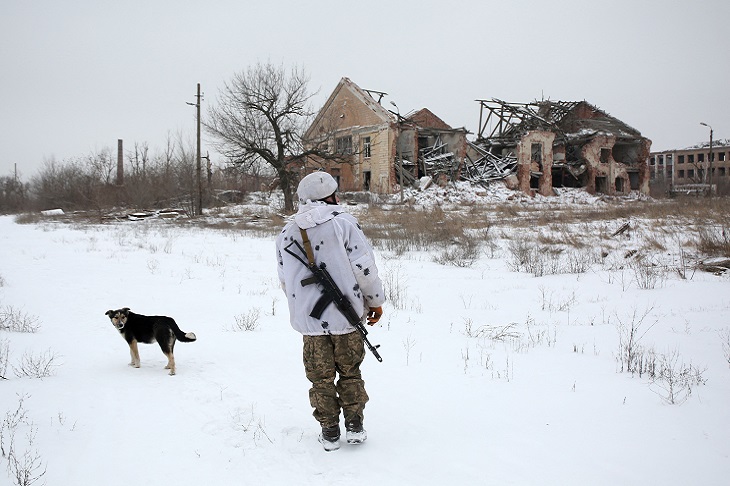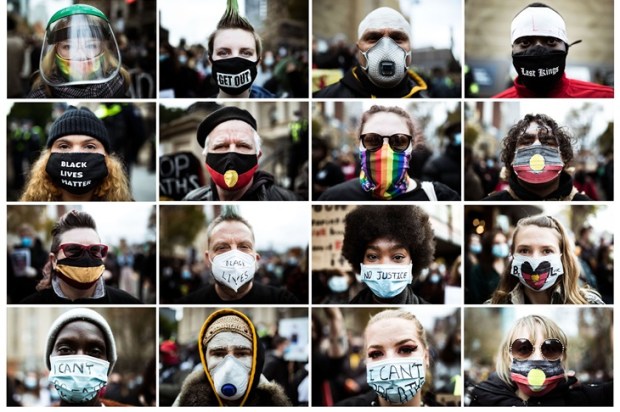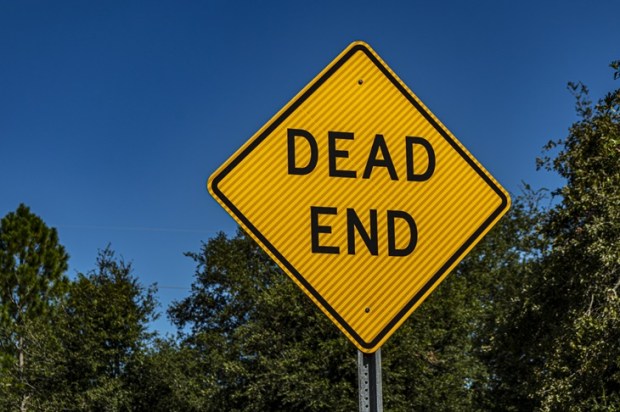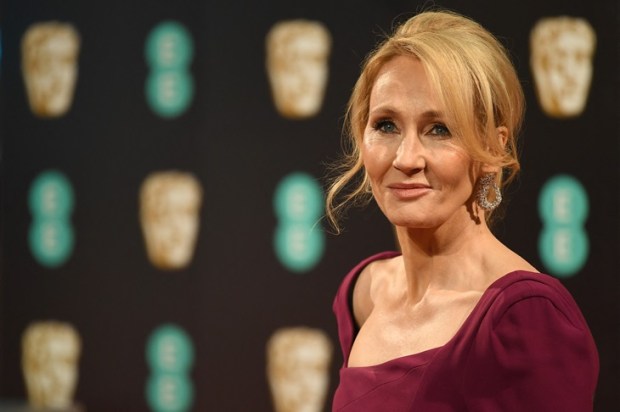Few people are better qualified than General Philip Breedlove (US) and General Sir Richard Shirreff (UK) to assess the military and geopolitical situation in the Russo-Ukrainian War. At the time of Putin’s last incursion in 2014, resulting in the illegal seizure and occupation of Crimea, and of the Donetsk and Luhansk oblasts of Ukraine – Breedlove and Shirreff held, respectively, the Supreme and Deputy Supreme allied command of Nato in Europe. Both now urge direct Nato intervention.
Of course, the political leadership of Nato has ignored the advice of these preeminent military experts. From the outset of the Russian invasion, President Biden has been saying that US military action is off the table. He has continued to say so (according to no less an authority than The Washington Post) ‘more firmly, in fact, than presidents usually do’.
There was no obvious reason to telegraph this to Putin, any more than it was necessary (let alone desirable) to telegraph America’s withdrawal from Afghanistan to the Taliban. The result, in both instances, has been the same: to embolden the aggressors. Faced with an opportunity to take a stand – or, at the very least, to create sufficient ambiguity that may be interpreted as a potential willingness to take some undefined stand at some unspecified future juncture – Biden’s reaction is, instead, a retreat to instinctive cowardice.
Why? Biden’s watchword, his shamanistic mantra, is the need to avoid ‘escalation’. After two months of fighting, tens of thousands of deaths, the razing of ancient and vibrant cities, and the expenditure of many billions on each side, fretting about ‘escalation’ seems somewhat outmoded. It also reflects an obtuse failure to learn the two indelible lessons of 1939. The first is that appeasing a belligerent autocrat only delays escalation; once the novelty of appeasement has worn off, it merely reinforces the warmonger’s sense of invincibility. The second is that a delayed escalation inevitably becomes a more intense escalation.
In this context, second world war metaphors have become something of a meme. Putin started it, with the laughable claim that his ‘special military operation’ was directed at the de-Nazification of a parliamentary democracy with an elected Jewish president whose relatives were murdered in the Holocaust. Putin’s chief apologist, Sergey Lavrov, has recently doubled down, observing that, ‘Kyiv could still have Nazi elements even if some figures, including the country’s president, were Jewish,’ and adding, ‘I could be wrong, but Hitler also had Jewish blood.’
Yet the analogy of 1939 does produce some striking resonances. Two dictators, clothed in the most transparent simulacra of democratic mandates. Two kleptocracies enriching oligarchs under the guise of socialism. State-of-the-art propaganda machines, backed by extreme censorship of independent media. Arbitrary arrests of dissidents. Unexplained disappearances of uncooperative or unsuccessful functionaries. Secret police and compliant courts to do the regime’s bidding. Recently revivified armed forces, supported by large-scale conscription. Repeated assurances denying aggressive military intentions, followed swiftly by premeditated simultaneous incursions on numerous fronts…
We see the same pretexts for invasion: the ‘liberation’ of ethno-linguistic minorities (German-speaking Czechs in the Sudetenland; Russian-speaking Ukrainians in the Donbas). The same fantasised objectives: to recreate the imagined glories of a distant imperial past. The same methodologies of warfare: blitzkrieg, followed by massive indiscriminate bombardment; ruthless atrocities against hegemonized non-combatants; the appointment of puppet gauleiters to replace elected officials. And the same craven response from liberal democracies, for whom no cost is too great to avoid ‘escalation’, provided it is paid in the blood of people of a distant and insignificant nationality.
If there is any justification for Nato and America havering, it is the oft-repeated nuclear threat. This is most probably a bluff by Putin, inspired by Biden’s expressed reluctance to enter a third world war after all, why should America be in at the beginning of a third world war when they somehow contrived to miss the beginnings of the previous two? But even the remotest chance of nuclear Armageddon makes the risk unacceptable. For that reason alone, direct Nato or American intervention will likely be postponed until it is too late.
There are European powers – e.g., Sweden, Finland, Austria, and Switzerland – which have no nuclear arms, and are not members of Nato. But one can understand their reluctance to intervene. Physical proximity and energy dependency render them vulnerable to retaliation, and, in some instances, constitutional mandates or long-standing traditions of neutrality provide principled support for passivity. Similar considerations apply to other countries close to borders with Russia or its few allies: e.g., Japan, South Korea, and Taiwan. India and Pakistan are excluded because both are nuclear powers, and neither is firmly in the West’s camp. Nor are, say, Brazil, Argentina, South Africa, Israel, Egypt, or Mexico.
So, where in the world is there a middling power – not nuclear-armed and not a member of Nato – which is far enough from Russia to risk direct intervention, and sufficiently courageous to make common cause with the besieged Ukrainians?
Australia has a long and creditable history of fighting other people’s wars in other people’s lands. This is not entirely altruistic. Ever since Fort Denison was constructed on Pinchgut Island to defend Sydney from a possible Russian naval attack during the Crimean War of 1853-56, our overarching strategy has been to defeat potential enemies before they reach our shores. As defensive strategies go, this one has worked a treat. Whilst Great Britain has not been successfully invaded since 1066, we have a better record: no enemy combatant has ever set foot on Australian soil except as a prisoner of war.
For 2022, the Global Firepower Index ranked Australia as 17th in the world for military strength, ahead of Ukraine in 22nd place. A similar survey by the publisher of US News puts Australia at 16th place and Ukraine at 33rd. A ranking published by The India Times has Australia at 19th place, with Ukraine unlisted amongst the top 21.
The reliability of such indices is questionable, since Russia’s forces are invariably ranked as either second or third best in the world, but are now widely regarded as only the second-best in Ukraine. Still, with a consistent ranking in the top twenty, Australia plainly has much to offer. Notably, the operational strength of the RAN closely approximates that of the Ukrainian Navy before Russia confiscated most of their fleet following the seizure of Crimea. Our army and air force would obviously have an added advantage, being trained and equipped to use the Nato armaments which are now flowing into Ukraine.
Australians need not join in front-line operations, for which local knowledge – and knowledge of the local language – would be beneficial. But even a deployment of 10,000 Australian troops (roughly one-third of our regular army strength) could relieve Ukrainian forces in areas like intelligence, logistics, IT, healthcare, engineering, and especially training, and provide much-needed rear-guard defence.
By now, the broad picture of Putin’s military objectives – if not the detail – is becoming apparent. After subjugating what remains of the Donbas, he intends to capture the whole of Ukraine’s seaboard, thereby creating a land corridor to the occupied territories of Crimea and Transnistria.
Needless to say, like so much of Putin’s rhetoric, the land corridor is merely a pretext. He cares little for Crimea and even less for Transnistria. The critical object is to neutralize major seaports like Mariupol and Odesa, rendering Ukraine landlocked. The end-game is to destroy Ukraine’s economy by preventing the export of its grain and other agricultural produce to the world. That this may lead to starvation in the world’s poorest countries is, for Putin, frankly neither here nor there.
This must not be allowed to happen. If nobody else will supply ‘boots on the ground’ to help Ukraine – or if nobody else can, without risking nuclear conflagration – will Australia rise to the challenge?
Got something to add? Join the discussion and comment below.
Get 10 issues for just $10
Subscribe to The Spectator Australia today for the next 10 magazine issues, plus full online access, for just $10.


























Comments
Don't miss out
Join the conversation with other Spectator Australia readers. Subscribe to leave a comment.
SUBSCRIBEAlready a subscriber? Log in